Background
In 2011 the state program “Accessible Environment” was launched to resolve the problem of inaccessible buildings and services in Russia. However, at the very beginning of the program the issue of lack of specialists in the field of creation of accessible environment was raised by many implementors of the program. As a result, the All-Russian Society of Disabled People decided to provide support to the state program by launching the project “World Accessible for Everyone”. The project provides educational trainings, during which the participants receive all the necessary information on the legal regulations in relation to barrier-free environment in accordance with the Russian legislation as well as how to perform the examination of accessibility of facilities, buildings, and services.
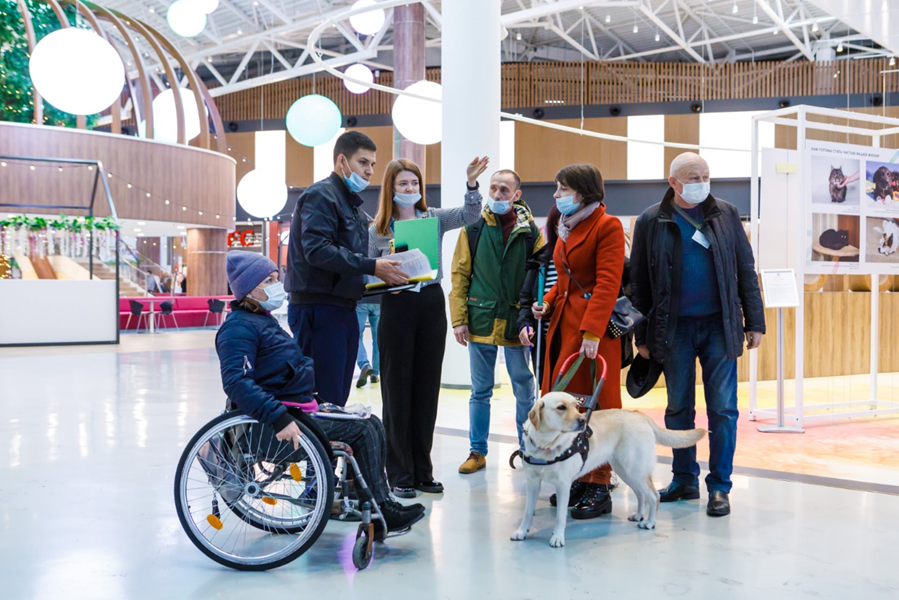
Upon completion of the educational training the participants receive an opportunity to be certified as “Experts in the Field of Barrier-free Environment” and to be employed by one of the Experts Centers all over Russia. The Expert Centers perform the examination of buildings, facilities and services and issue certificates of accessibility, helping private and state institutions to create accessible environment at the same time providing employment opportunity for persons with disabilities.
Project Implementation During Grant Period from April 2020 to June 2021 the project was funded by the Rehabilitation International Global Disability Development Fund. During this period 2133 online and 182 in person participants took part in the project activities, 97 participants successfully passed examination, correctly submitted practical assignment, and joined the pull of 567 Experts operating in 72 regions of Russia and in 41 Expert Centers.
It is important to mention that despite the restriction imposed due to the spread of the COVID-19 the outcomes of the project exceeded considerably the expectations at the time of the application.
In comparison, it was expected that the project would consist of:
4 in-person trainings (120 participants)
1 motivational training (20 participants)
1 conference (20-25 participants).
However, the outcomes were the following:
15 webinars (1614 participants)
3 online trainings (469 participants)
3 in-person trainings (76 participants)
1 motivational training (12 participants)
1 conference (25 participants)
2 in-person trainings for the Russian Railways employees (69 participants, financing by Russian Railways)
1 online training for the members of the All-Russian organization of parents of disabled children (50 participants, financing by AROPDC)
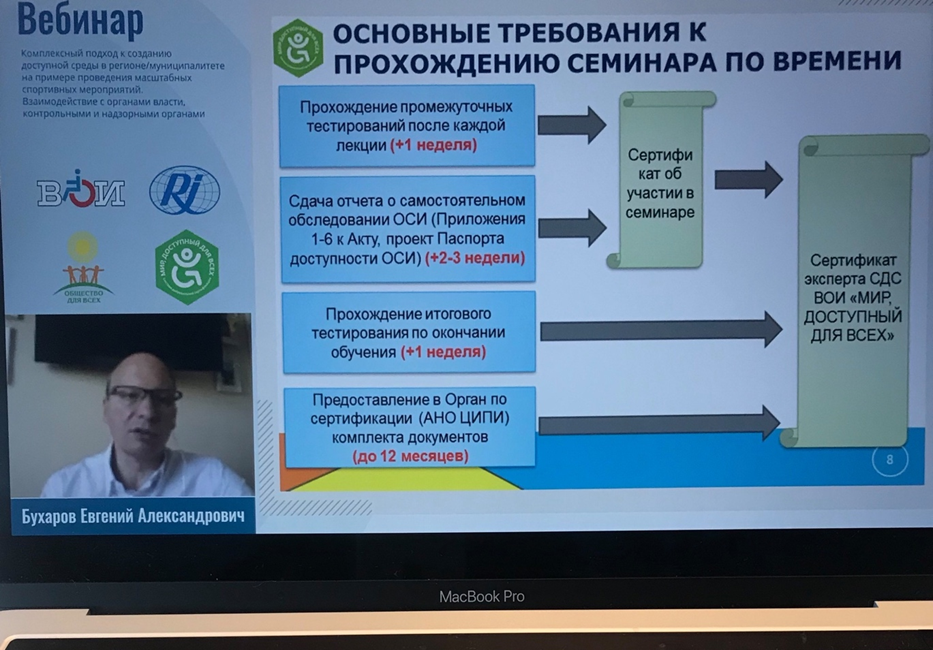
The 3 in-person trainings were conducted in Moscow under strict safety measures (all the participants were tested for the coronavirus before the training COVID safety kits (which included masks, sanitizers, gloves etc.) and UV lamp were purchased and actively used during the trainings.
Despite all the challenges caused by the pandemic the project has been successfully developing on the national level, the number of Expert Centers grew from 2 Centers in 2015 to 41 Centers in 2021 nowadays covering almost completely the most populated regions of Russia.
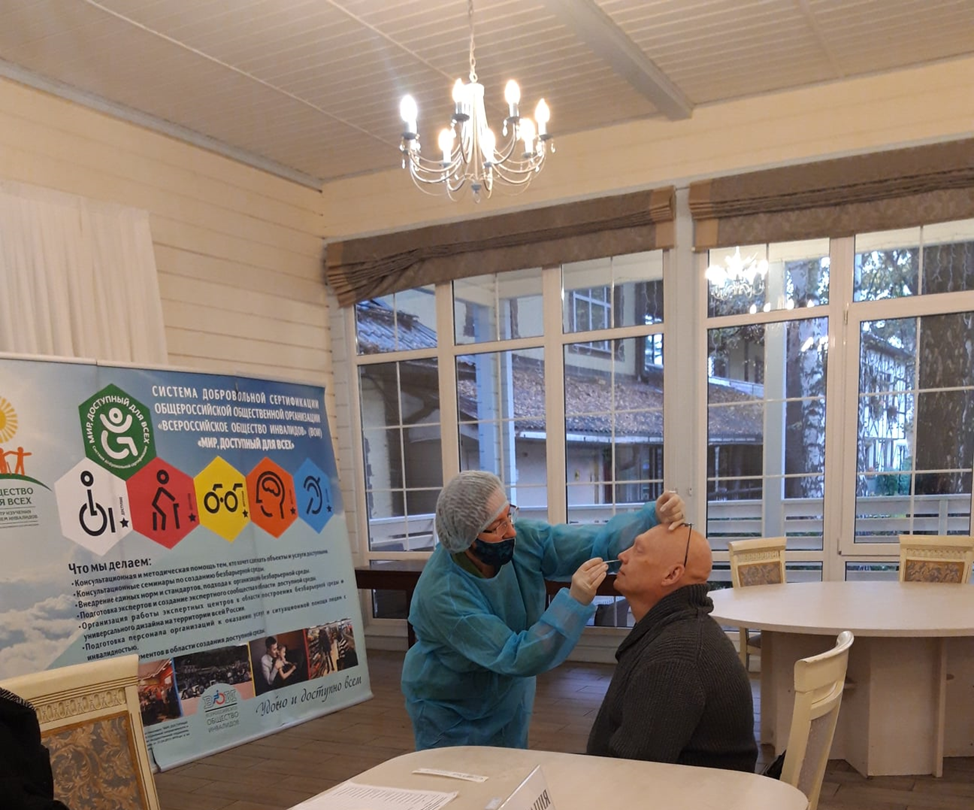
The online platform was tested and proved to be successful, the agenda of the in-person training was adopted for the online implementation, it requires some minor adjustments in the future, but the assessment showed that the audience was highly satisfied with the online education method.
Moreover, the project started to provide training of staff on accessibility and provision of services for people with disabilities for employers and elaborating corporate standards and documentation on accessibility and disability inclusion. Among the trainees of the project were the biggest service providers in Russia, such as airports, museums, banks, and different state agencies. In 2020-2021 the staff of Russian Railways underwent training and set of standards on accessibility is being elaborated specifically for the Russian Railways employees and customers.
The project also involves cooperation with non-commercial sector, in 2021 the project conducted the online training for members of the All-Russian organization of parents of disabled children.
In addition, the project started providing conferences and workshops on different disability topics. The project started attracting interest of the organizations from the neighboring countries. In 2020 and 2021 2 participants from Kazakhstan sent their application for participation in the in-person training. Due to the travelling restrictions, they were not able to participate. However, they are expected to be trained, when the situation allows, which means that the project could be broadened to more countries, staring with the post-Soviet region, since these
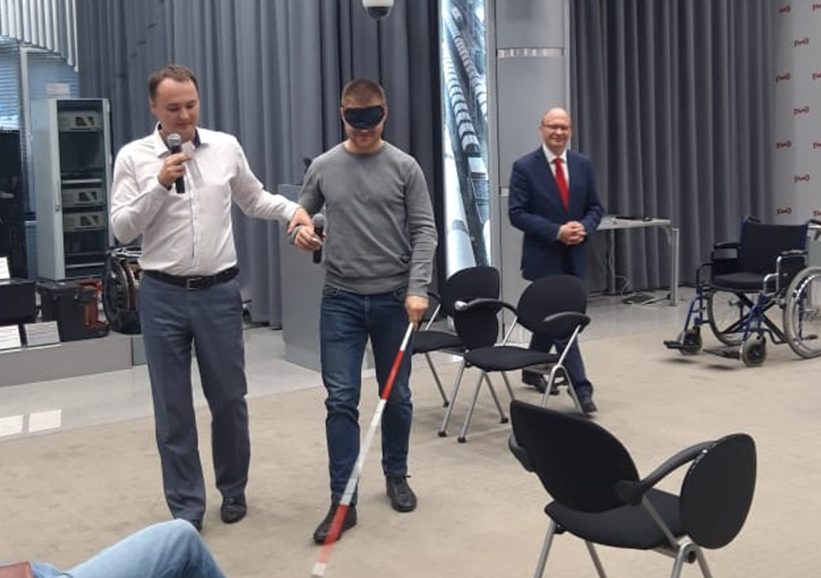
The Russian Railways employee during practical assignment of the training
Furthermore, the association agreement with the International Association of Accessibility Professionals (IAAP) was signed to take the role of the IAAP Representative in Russia as well as to become approved Global Certification Preparation Training Provider. The IAAP is a Division of the Global Initiative for Inclusive ICTs (G3ict). G3ict is an advocacy initiative launched by the United Nations Global Alliance for ICT and Development, in cooperation with the Secretariat for the Convention on the Rights of Persons with Disabilities under UN DESA. Joining IAAP can spur the development of the project and bring the discussion of the accessibility issues on the next level, since it will enhance the level of qualification of the trainees, will allow to adopt best international practices and will raise more awareness about accessibility in Russia.
“Women’s Voices Project”- funded by the Rehabilitation International Global Disability Development Fund
Women’s Voices became a reference project by giving women a voice and establishing innovative formative practices and paths, enabling dialogue between women with different histories, from different locations and different types of disabilities.
The challenge of the project, in its second year, was the consolidation of partnerships already established, the conquest of more partnerships and, thus, the expansion of its activities to the peripheral neighborhoods of the city of São Paulo, significantly combining its activities with women with disabilities, women caregivers, poverty and social exclusion.
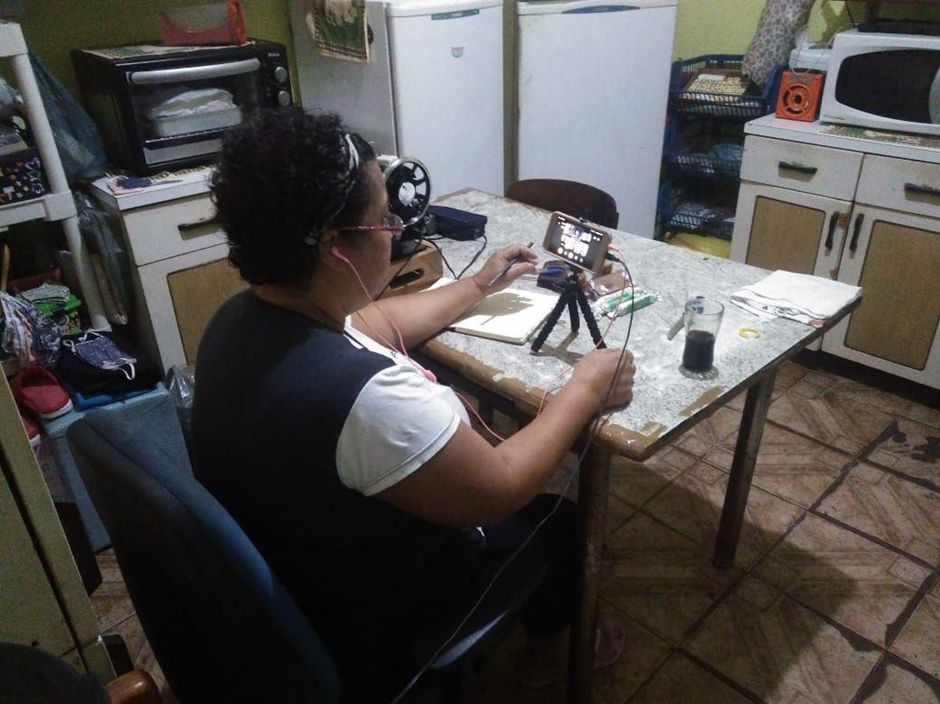
What the project’s team couldn’t predict was the coronavirus pandemic, declared in March 2020, in Brazil. Women’s Voices were fully adapted to virtual meetings and overcame barriers of technological exclusion by acquiring equipment to women with disabilities and caregivers of Brasilândia, the territory (a big favela – slum) chosen due to the connections with the public rehabilitation center. In this context, we initially trained 7 women with disabilities and caregivers of disabled family members to act as mobilization and social inclusion agents (AIMS) in their communities, coordinating rounds of conversation with other women on issues related to the rights of women and people with disabilities.
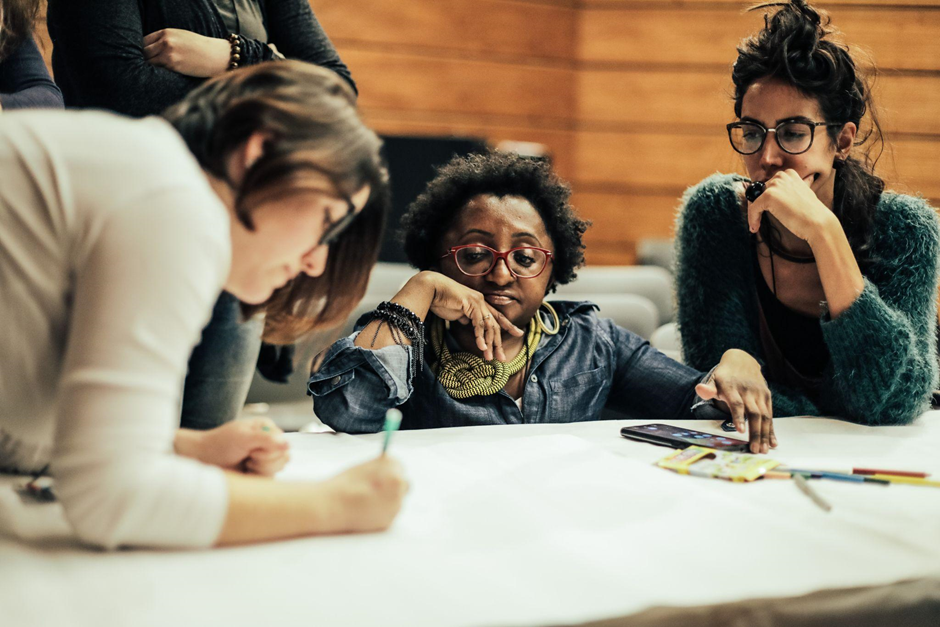
Even with a smaller attendance, the mutual support of these women was noticeable. They conducted weekly virtual rounds of conversation among approximately 70 other women with disability and caregivers of Brasilândia and Freguesia do Ó, with themes suggested by the participants themselves, such as female empowerment, self-esteem and violence against women. In these rounds of conversation, we found another 8 women with disabilities and caregivers to join the AIMS team.
The 15 Agents of Inclusion and social mobilization (AIMS) formed in 2020, plus the 4 women in the operational team, decided in 2021 to develop a mapping survey with the objective to find more people with disability, the idea appeared as a need to contribute to provide quality accessible services, as the limited availability of accessibility keeps people with disabilities away from social interaction spaces such as work, entertainment, education, and health.
This mapping finished with an online event to present the results, but it also leaves an opportunity to grow and expand the project in other peripheries both in the city of São Paulo and in the states of Brazil where BRASA have partnerships.
In a virtual experience the team has learned that virtual activities can be considered easier to carry out and, because of this, the team could perform a higher number of expected meetings, publications on the project online platforms and webinars (previously unplanned). This numerical decrease in women participants, however, was accompanied by an increase in activities and made the team realize greater and better results in improving the quality of life of each woman participating in Women’s Voices.


